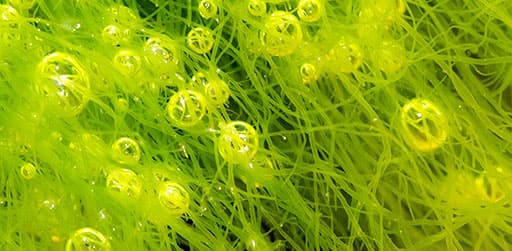Shell is a worldwide group of oil, gas and petrochemical companies with interests in biofuels, wind and solar power and hydrogen. Active in more than 130 countries and territories, Shell employs 108,000 people worldwide.
While oil and gas continue to be integral to the global energy needs for economic development, the company’s short- and long-term business success depends on finding economically, environmentally and socially responsible ways to help meet the world’s future energy needs.
From the icecaps of the Arctic Circle to the shores of Kona, Hawaii, the need for sustainable energy is one of the most pressing issues facing society today. The consumption of fuel refined from crude oil emits greenhouse gases into the atmosphere, which many scientists believe melts polar caps, raises sea levels, and has other climate consequences.
Biofuel, organic fuels made from plants and vegetables, is considered to be a proven means of reducing these greenhouse gas emissions and increasing energy security by providing an alternative to fossil fuels1, yet current approaches have not been economically competitive with conventional sources.
Shell is working to meet government mandates for biofuel and, with its experience, expertise and assets, has become the world’s largest distributor of biofuels. However, conventional biofuel solutions are not a magic bullet solution. These energy sources continue to rely on soil and water that are used for human food crops, which can dramatically raise the cost of food.
The high demand for corn, for example, has not only resulted in skyrocketing prices of cereals found in supermarkets, the increased price of corn has led to a potential nutritional crisis for impoverished Mexican families, which rely heavily on corn tortillas for nutrition.2
On the frontlines of this energy crisis, Shell has been diligently investing in efforts to develop next-generation biofuels and alternative processes.
Shell took this challenge as an exercise in innovation. Making full use of Goldfire, the optimal decision engine, the Shell team explored new concepts for next-generation biofuels, leading to the concept of marine algae—to most, an unexpected solution to the world’s energy needs.
“Really clever people can often be sitting in the dark, making innovation subject to chance. We had a different view. We chose to organize ourselves and use Goldfire. The software matched our views of TRIZ methods that deal with removing constraints to innovation, and Goldfire has proven to be entirely effective for us,” stated Ian Archibald, algae fuel development manager at Shell Global Solutions.
Goldfire’s functional modeling was one of the most important software capabilities—stimulating important thinking to create, then realize this concept. We’ve had an entirely useful and positive experience with Goldfire.
Ian Archibald,
Algea Fuel Development, Shell Global Solutions
Using Goldfire software, the team collaborated on the creation of sophisticated function models—visual diagrams to better understand “how a biofuel processing system would work”—while capturing the team’s understanding of known challenges and opportunities. They then used these models as a launch pad for exploring new concepts, with Goldfire’s integrated technology platform. Armed with these dynamic function models, one click on any part of the depicted “challenge” or “opportunity” gave each Shell engineer or scientist semantic access to precise ideas from internal and external knowledge bases and Goldfire’s vast technical content to accelerate innovative thinking regarding a commercially-feasible and climate-friendly biofuel from algae.
Once seen as a dream of many chemistry, physics, and biology enthusiasts, the potential uses for algae had been confined to the labs of universities. But with the help of Goldfire, Shell has made this a reality. Today, Shell has formed a joint venture with HR Biopetroleum, called Cellana, to provide the first platform for commercial development and potential deployment worldwide.
Algae hold great promise because they grow rapidly, produce at least 15 times more oil than other biofuel crops, and can be cultivated in ponds of seawater, minimizing the use of fertile land fresh water. In addition, algae can be fed carbon dioxide directly from smokestacks, further reducing the carbon footprint.
The need for innovative, commercially-viable, and environmentally-sustainable energy sources continues to be profound. As biofuels become an increasingly important part of the world’s energy solutions, Shell’s feat of innovation with marine algae is poised to lead the way.
Goldfire Usage Highlights
Shell Global Solutions’ innovation philosophy is supported by Goldfire’s robust and integrated technology tools:
- Stimulation of creative thinking from specialized ideation libraries
- Function Modeling to achieve a well-informed starting point for innovation efforts
- Integrated Semantic Technology to access relevant concepts from internal and worldwide wisdom
- Innovation Trend Analysis to identify complementary technologies
- Risk Mitigation tools to support analysis of environmental impact
1 U.S. Environmental Protection Agency, SmartWay Grow & Go, October 2006
2 Cost of Corn Soars, Forcing Mexico to Set Price Limits,” New York Times
